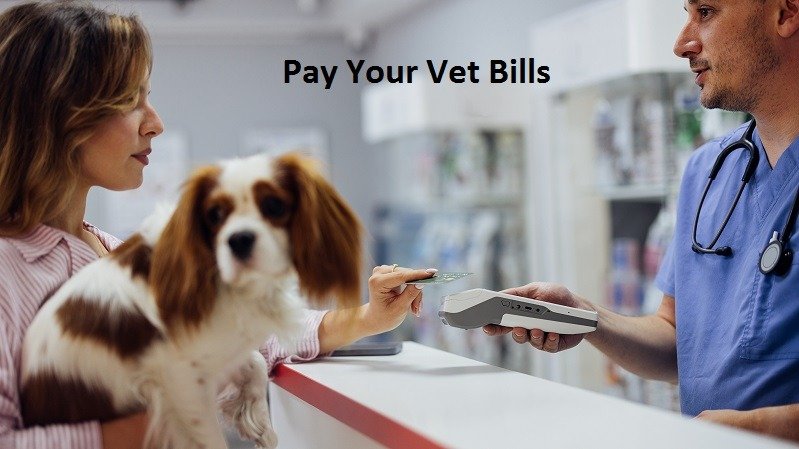Pets are not just great companions; they make your life exciting and fulfilling. They mean the world to you. Hence, you want to do everything to keep them healthy and safe. However, unexpected life events like a pet injury could turn your financial and mental world upside down. You may not be ready for a long vet bill.
This uncertainty of arranging the money and confusion leads to panic-like situations. You may find yourself in a tight spot with such whopping bills. Don’t worry; you don’t need to halt your favourite buddy’s treatment due to cash fluctuations. The blog lists the immediate actions to take to pay the vet bills. If you have a pet and often find yourself in such situations, the blog may help.
How much does the average dog bill cost?
An average trip to the vet may cost around £393, as per Tesco Pet Insurance. Thus, most families compromise their holidays to pay for the pet’s treatment. Moreover, according to the Competition and Marketing Authority ( CMA) last year review, “56000 pet owners believe that they are paying too much on vet bills.” Most specialised Vets don’t reveal the prices on their websites. It affects the individual’s capacity to save or budget before consultation.
My dog needs surgery, and I cannot afford it. What to do?
If your dog needs surgery and you cannot pay for it, seek help from organisations like PSDA People Dispensary for Sick Animals), Blue Cross, and RSPCA (Royal Society for Cruelty to Animals). You may get low-cost or free veterinary care. You may get help from these organisations depending on your personal financial situation. Here are other things that might help you in such situations:
1. Tap your emergency fund
An emergency fund is a savings account exclusively for sudden expenses. One may use it in an extreme cash crisis. You can save any amount, with the minimum being 50. If you have savings for almost 8-9 months, you can use them. However, check whether it could help you pay for the surgery. For example, if the surgery costs £45000 but you have only £5000, then it may not help.
2. Discuss payment plans with the vet
Yes, most vet doctors provide payment plans for you to repay comfortably. It eliminates the need to pay the amount in a lump sum. Instead, you can pay for instalments until the treatment period. They analyse your income and other liabilities. Accordingly, you may get a payment plan that allows you to pay comfortably.
3. Consider an unsecured personal loan
Personal loans are the best when you need cash urgently. It is a feasible option if you don’t qualify for help from organisations or charities. Determine the approximate vet bill. It is better if you have a receipt for the total expenses. Accordingly, analyse how much you can pay from your savings.
Alternatively, take unsecured loans from a direct lender and finance the full amount. It will help you begin the treatment without wasting another moment. You may get the amount on the same day. It just requires you to prove your affordability for the loan. Individuals with a fair credit score, a lengthy
employment period, and a credit history may qualify for better rates. Choose a comfortable and realistic amount that you can pay back later.
4. Attract Crowdfunding
People are generally sensitive towards pets. Thus, launching a genuine and personalised crowdfunding campaign may help. Check whether the payment account and link work well. Attach a reliable contact number for the person. It may help you get some donations for the pet’s treatment.
Can you get help with vet bills on Universal Credit?
Yes, you may get help with vet bills if you are on Universal credits or benefits. Organisations like Blue Cross and PSDA provide it. You may get low-cost assistance with vet bills if you live within the postal code of the catchment area of one of the animal hospitals. It is valid for individuals receiving the following benefits:
- Jobseeker’s Allowance
- Universal credit without the Housing element
- Pension Credit
- Child Tax and Credit
- Income support
- Employment Support Allowance
- Disability Allowance/ PIP
- Retired pensioners with Council tax bands A-D
You may also get free vet care if you are on benefits income. You just need to meet the PIN code and catchment area eligibility criteria of the hospitals nearby. You may qualify if you receive benefits like:
- Housing benefit (means-tested)
- Council tax support (means-tested)
- Universal credit with the housing element
You may get free vet care if on benefits by searching for services “near me”. Check the eligibility criteria and apply. The amount you get depends on your financial condition.
Are there any charities that may help with vet bills?
Yes, some charities help with vet bill payments in the UK marketplace. These primarily address the concerns of low-income pet owners. Apart from Blue Cross, PDSA, and RSPCA organisations, you can contact the below for help:
1. Dog’s Trust Society
You may get free and affordable assistance for your dog’s treatment. It is especially for individuals facing a housing crisis or homelessness.
2. Cats Protection charities
This organisation offers financial assistance to pet owners for cat neutering and micro-chipping. Individuals with struggling income and finances may qualify.
3. Local charities and organisations
You may spot several charities around your area that help with vet bills and assistance. You can consult your vet to spot and find out about such charities in your area.
How to negotiate the bill with the vet?
It is ideal to tell your vet about your financial situation. Address this by representing your basic pay, liabilities, and how much you can afford. Identify whether the vet can reduce sessions. However, proceed only if it does not hamper the pet’s health. Most vets understand your concern and may be eager to help. Here is what you can do to negotiate the plan:
1. Authenticate the bill
Identify whether the bill you got is authentic. Analyse the overview of the costs. If you find some hidden costs, place your request under the Consumer Rights Act. Support your plea with sufficient proof for some action. It is because the vet must be true to the fees they charge. You can use the Act to know the bill split. It requires the vet to provide a detailed overview of the costs and reasons.
2. Check for the discounts
Identify whether you could get any discounts given the situation. Most vets offer some to their regular customers. If you have been visiting the same vet for years, you can be lucky here. Alternatively, analyse whether you can save some on the treatment process. Only an experienced vet may help you with that. He may tell you how you can save on anaesthesia and how much. You can even save on dressing (if required).
3. Charge for only the drugs they use
Sometimes, most equipment, medicines, anaesthesia and other medical things go to waste. It is because you buy the treatment in bulk. However, check whether you can pay only for the usage. It brings down the costs of the treatment significantly. Discuss the possibilities of the same with the vet and authorities.
Bottom line
Most individuals struggle with vet bill payments. In this condition, they check the best ways to save money on vet bills. If you can relate to the situation, the blog may help. Check the charities,
organisations, and vets if they may help. Identify the discounts and seek payment plans. It will help you repay the bill in monthly instalments instead of a lump sum. It thus takes away the hassle.











































